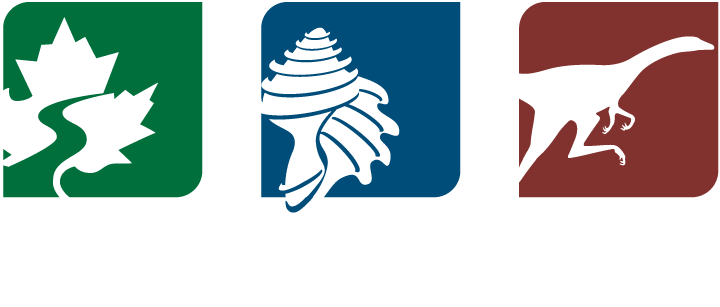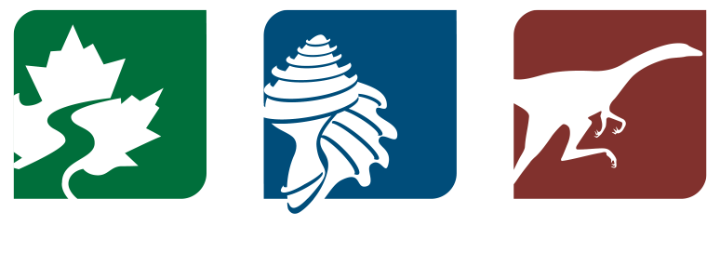Phoebe Cohen
Phoebe Cohen
Phoebe Cohen
Micropaleontologist
Phoebe Cohen is a micropaleontologist. She studies ancient, single-celled, microscopic organisms that lived before animals evolved.
Phoebe has been interested in science and nature since she was young. At Cornell University, she had great mentors who helped her see herself as a scientist and encouraged her to move forward with her career. After college she worked at PRI, and that experience convinced her that she wanted to be a paleontologist.
Phoebe received her Ph.D. from Harvard University in 2010 and is currently an Associate Professor of Geosciences at Williams College in Massachusetts. She is very involved in diversity and inclusion work in the geosciences.
Phoebe’s work sometimes takes her to exciting places, including the Yukon-Alaska border, where she studied 800-million-year-old rocks. The first time that she went to work on these rocks, her team was chased by a grizzly bear!
What are some of your biggest achievements and/or challenges so far in your career?
“For me the biggest challenge has been finding my own path as a scientist. What do I want to explore? What’s important to me?... I have had to work hard to just focus on the things that excite me and make me happy. One of the best parts of my career are the people that I work with. Over the years I’ve developed an incredible network of other scientists, many of them women. This feels especially important to me since I had very few women mentors and peers as a student. While I often work alone, I do not feel alone as a paleontologist, I feel a part of something larger than myself.”
Daring to Dig Interview
In this video, Phoebe discusses her research into single-celled eukaryotes (organisms with complex cells), her educational pathway, how implicit bias impacts women in science, and how she views the future for women scientists. This interview was done in 2016, when Phoebe was an Assistant Professor at Williams College. She has since been promoted.
800-million-year-old rock
This limestone and chert rock is from Mount Slipper, western Yukon, Canada. It is 800 million years old (Tonian Period). Limestone and chert both contain microfossils made of the mineral apatite. These microfossils are believed to be the oldest evidence of biomineralization (organisms using minerals to make hard parts).
800-million-years-old limestone and chert rock from Mt. Slipper, Yukon, Canada. Specimen on loan from Phoebe Cohen. Photo: Paleontological Research Institution.
Selected works by Phoebe Cohen
Cohen, P.A., and L.A. Riedman. 2018. It’s a protist-eat-protist world: recalcitrance, predation, and evolution in the Tonian-Cryogenian ocean. Emerging Topics in Life Sciences 2: 173–180. Link
Cohen, P.A., F. Macdonald, S. Pruss, E. Matys, and T. Bosak. 2015. Fossils of putative marine algae from the Cryogenian Glacial Interlude of Mongolia. PALAIOS 30: 238–247. Link
Cohen, P.A., S. Irvine, and J.V. Strauss. 2017. Vase-shaped microfossils from the Tonain Callison Lake Formation of Yukon, Canada: Taxonomy, taphonomy, and stratigraphic paleobiology. Palaeontology 60: 883–701. Link
Cohen, P., R. Lockwood, and S. Peters. 2018. Integrating Macrostrat and Rockd into undergraduate Earth Science teaching. Cambridge Elements: Elements of Paleontology. Cambridge University Press, Cambridge. Link
Cohen, P.A., M. Vizcaíno, and R. Anderson. 2020. Oldest fossil ciliates from the Cryogenian glacial interlude reinterpreted as possible red algal spores. Palaeontology 63: 941–950. Link
Further reading
Chu, J. 2011. Ancient armor: Fossils from the Yukon reveal protective plates for microscopic organisms. MIT News, 7 June 2011. Link
Gluckman, N. 2018. Field sites are harassment hell. Here’s how to improve them. Chronicle of Higher Education, 15 July 2018. Link
Gronstal, A.L. 2014. Q&A with Dr. Phoebe Cohen. Astrobiology Magazine, 16 September 2014. Link
Lu, A. 2020. Professors balance remote teaching with childcare as Massachusetts schools close. The Williams Record, 17 February 2021. Link
Stricker, B. 2017. Daring to dig : Adventures of women in American paleontology. PRI Special Publication No. 54. Paleontological Research Institution, Ithaca, New York.
Sullivan, W. 2017. New fossils push back earliest single-celled skeletons 200 million years. NOVA, 6 July 2017. Link
Video & audio content
Cambridge Science Festival: Story Collider - Phoebe Cohen. Video, 13 June 2012, via YouTube: Link
Paleontological Research Institution: “A gender analysis of the Paleontological Society: problems, progress, and possibilities.” Presentation by P. Cohen at the PRI Summer Symposium, 8 August 2020, via YouTube. Link
Science in the Virtual Pub: Women in Paleontology Discussion Panel. Panel for Daring to Dig exhibit held 25 March 2021. Video, 2021, via YouTube. Link





